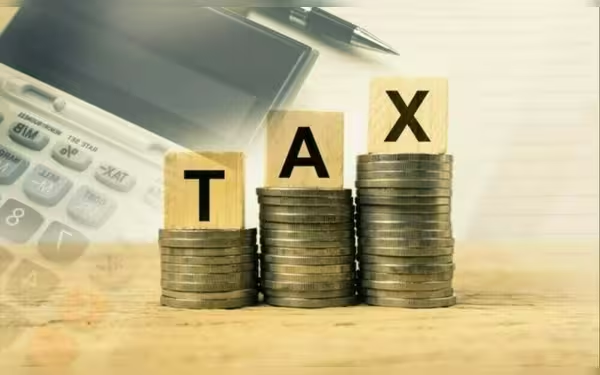Wednesday, December 4, 2024 06:54 PM
Government Urged to Tax High-Earning Sectors to Address Revenue Shortfall
- Tax shortfall exceeds 180 billion PKR in four months.
- Dr. Gohar Ejaz calls for taxing 'sacred cows'.
- IMF delegation discusses revenue measures with FBR.
 Image Credits: brecorder
Image Credits: brecorderDr. Gohar Ejaz urges government to tax high-earning sectors amid significant revenue shortfall in Pakistan.
The economic landscape of Pakistan is currently facing significant challenges, particularly in terms of revenue collection. With a staggering tax shortfall of over 180 billion Pakistani Rupees in the first four months of the fiscal year, the government is under pressure to find solutions that do not further burden the already struggling populace. Inflation has soared to 60% over the past two and a half years, making it increasingly difficult for ordinary citizens to meet their basic living standards.
In light of these pressing issues, former Caretaker Federal Minister for Commerce, Dr. Gohar Ejaz, has called upon the government to reconsider its approach to taxation. He emphasized the need to target the "abnormal profits of sacred cows" in specific sectors, rather than imposing additional taxes on the common man. This statement was made in a post on the X platform, where he highlighted the importance of reforming the taxation system to address the shortfall in revenue collection.
Dr. Ejaz, who also chairs the FPCCI Pakistan Economic Revival and Growth Think Tank, proposed that the government should provide relief in electricity rates. He suggested a reduction of Rs12 per unit not just for incremental electricity usage, but for all consumers—residential, commercial, industrial, and agricultural—on their total consumption. He believes that this can be achieved by finalizing a capacity payment agreement on a take-and-pay basis by December 31, 2024.
These remarks come at a crucial time as an International Monetary Fund (IMF) delegation is visiting Pakistan to discuss recent developments and the Extended Fund Facility (EFF) program. The agenda for the IMF-Pakistan meetings is expected to focus heavily on measures aimed at curtailing expenditure and increasing tax collection. The Federal Board of Revenue (FBR) has reported a collection of Rs877 billion in October 2024, falling short of the assigned target of Rs980 billion, which reflects a shortfall of Rs103 billion. Over the first four months of the fiscal year, the FBR has collected Rs3,440 billion against a target of Rs3,636 billion, resulting in a total shortfall of Rs196 billion.
On a recent Tuesday, the FBR informed the IMF team that there is no immediate need to enforce additional taxation measures, except for considering a proposal to impose a lower sales tax rate of 5-7% on petroleum products to help bridge the revenue gap for 2024-25. This proposal, if implemented, could provide some relief to consumers while also addressing the urgent need for increased revenue.
The call for reform in Pakistan's taxation system is not just a matter of fiscal policy; it is a plea for fairness and equity in a time of economic distress. By focusing on the "sacred cows" that have long evaded their fair share of taxes, the government can alleviate some of the burdens on ordinary citizens. As discussions with the IMF continue, it is crucial for policymakers to consider the long-term implications of their decisions, ensuring that the path to economic recovery does not come at the expense of the most vulnerable segments of society.













